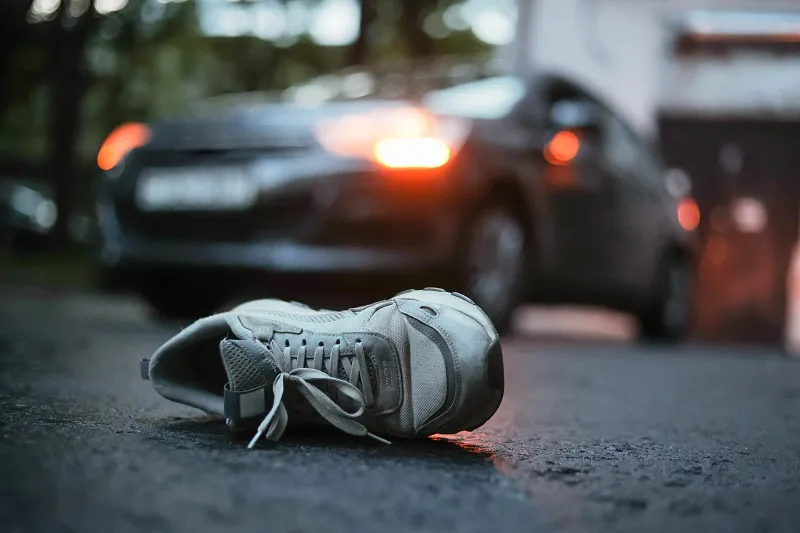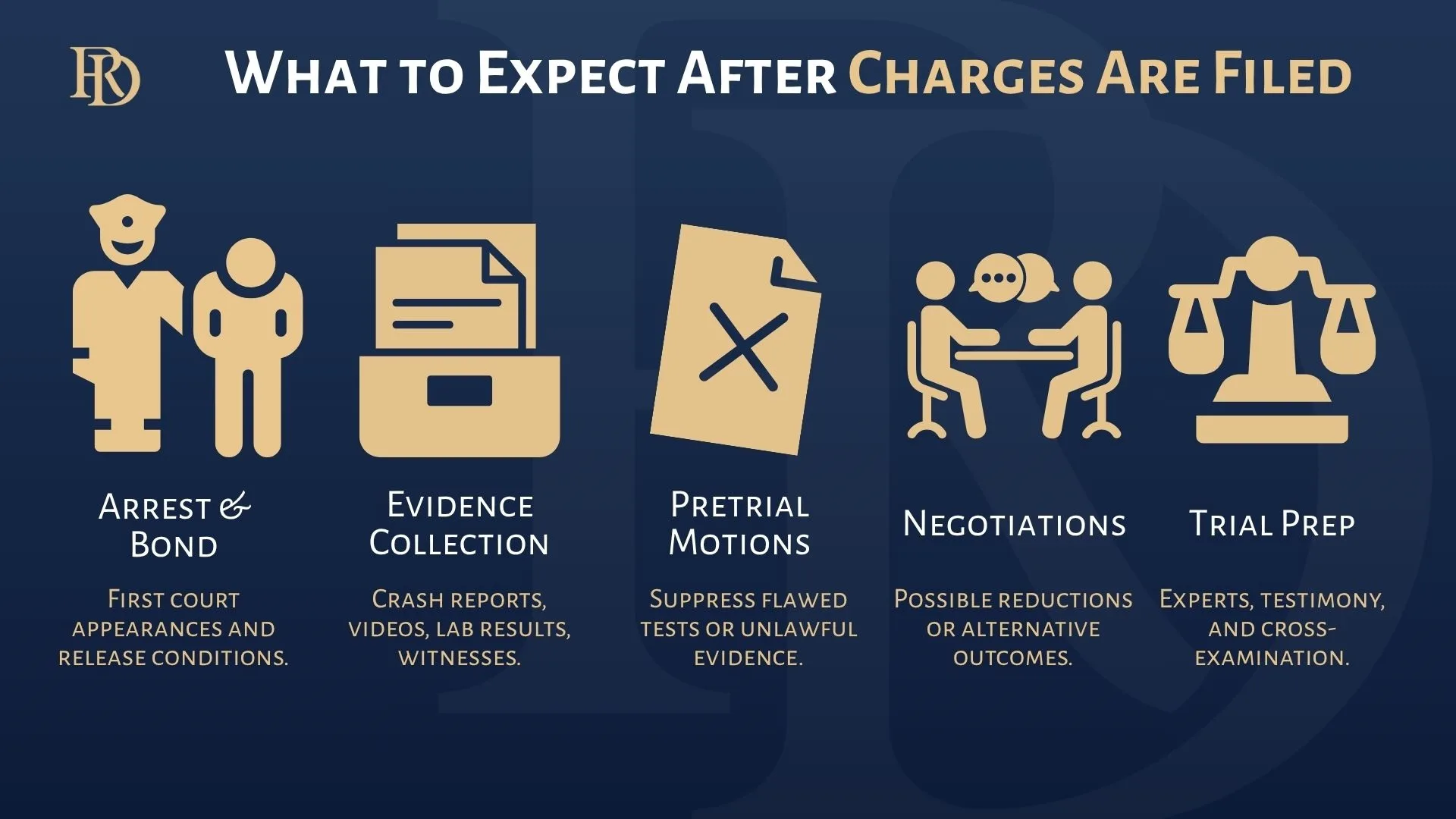
Defending Against Vehicular Manslaughter Charges in Texas
Vehicular manslaughter is one of the most complex criminal charges a driver can face in Texas. These cases blend traffic law, criminal statutes, and technical evidence, making the defense strategy highly fact-specific. In this article, we'll cover how Texas law treats different forms of vehicular homicide. This is the first step in preparing a defense that holds up in court, followed by hiring a skilled manslaughter defense lawyer who specializes in these types of criminal cases.
How Texas Defines Vehicular Manslaughter

Unlike some states, Texas does not have a stand-alone “vehicular manslaughter” statute. Instead, prosecutors rely on three separate provisions:
- Manslaughter (Texas Penal Code § 19.04): Recklessly causing the death of another person. Classified as a Second Degree felony. In other states, this is often described as involuntary manslaughter when it involves a motor vehicle.
- Criminally negligent homicide (Texas Penal Code § 19.05): Causing death through criminal negligence. Classified as a state jail felony.
- Intoxication manslaughter (Texas Penal Code § 49.08): Operating a motor vehicle while intoxicated and causing death by reason of that intoxication. Classified as a Second Degree felony, and enhanced to first degree if the victim is a peace officer, judge, firefighter, or EMS professional on duty.
Each charge falls under the broader category of criminal homicide in the Texas Penal Code. The precise charge depends on how prosecutors view the driver’s mental state and the circumstances of the accident.
Common Scenarios Leading to Charges

Vehicular manslaughter charges in Texas often stem from everyday situations that escalate into life-altering criminal cases. While each case is fact-specific, certain scenarios appear again and again in courtrooms:
Alleged Reckless Driving
Prosecutors may argue that extreme speeding, street racing, ignoring traffic signals, or weaving through traffic amounts to reckless conduct. Even if a driver did not intend harm, Texas law treats reckless behavior that leads to the death of another person as manslaughter.
Distracted Driving Accidents
Texting, adjusting navigation, or handling a phone at the wrong moment can turn a routine trip into an unintentional vehicular manslaughter case. If distraction is tied to the fatal crash, prosecutors may argue it shows criminal negligence.
Intoxication Manslaughter

Many charges follow chemical testing after a fatal car accident. Breath tests, blood draws, or urine samples that indicate intoxication can form the backbone of the state’s case. In these prosecutions, the key issue is not intent but whether intoxication caused the death.
Complex Accident Conditions
Crashes involving bad weather, road construction, poor visibility, or the actions of other drivers can lead to contested charges. Prosecutors may still pursue vehicular manslaughter if they believe a driver’s decision to speed, drink, or take unnecessary risks was a contributing factor, even when multiple causes exist.
Potential Penalties
Convictions bring significant penalties:
- Manslaughter or intoxication manslaughter: 2–20 years in prison, fines up to $10,000.
- Criminally negligent homicide: 180 days–2 years in state jail, fines up to $10,000.
Beyond prison terms and fines, defendants also face license suspension, a permanent criminal record, and limits on probation or community supervision.
How Prosecutors Build Their Case
To convict someone of vehicular manslaughter in Texas, the state must prove its theory beyond a reasonable doubt. Prosecutors typically focus on three key elements:
- Mental state: For manslaughter, they must show reckless conduct. For criminally negligent homicide, they must show criminal negligence. For intoxication manslaughter, they only need to prove the driver was intoxicated and that the intoxication caused the death.
- Causation: It is not enough to prove a driver was intoxicated or negligent. The state must also prove that the conduct directly caused the death of another person. This often becomes a battleground for defense attorneys, mainly when outside factors (road hazards or another driver’s actions) contributed to the accident.
- Operation of a motor vehicle: Prosecutors must establish that the defendant was in control of the vehicle at the time of the crash. This may rely on eyewitness accounts, accident reconstruction, or forensic evidence.
In intoxication-related cases, the 0.08 BAC threshold under Texas law creates a presumption of intoxication. But prosecutors can still bring charges when the BAC is below 0.08 if officers or experts claim that alcohol, drugs, or controlled substances impaired the driver’s ability to operate a vehicle safely. This means that field sobriety tests, officer observations, and toxicology reports often play a significant role in shaping the state’s case.
Prosecutors may also call crash reconstruction experts, toxicologists, and first responders to build a narrative of fault and link the defendant’s actions to the death. Each of these steps creates opportunities for a Texas Board-Certified criminal defense lawyer to challenge reliability, accuracy, and interpretation.
Defense Strategies That Can Create Reasonable Doubt

Every case is different, but here are some of the ways to build the strongest possible defense:
- Causation isn’t clear: Did another driver, a tire failure, or a road hazard cause the crash? If the collision had happened regardless of intoxication, that matters.
- No recklessness or criminal negligence: A mistake isn’t always a crime. We test whether the facts meet Texas Penal Code standards for manslaughter or criminally negligent homicide.
- BAC and testing challenges: Was the blood alcohol draw legal? Was the device maintained? Was retrograde extrapolation used properly? Chain of custody?
- Timeline gaps: Did death occur from the crash or later complications? Medical causation can be disputed.
- Accident reconstruction: Attorneys can use EDR “black-box” data, scene mapping, and physics experts to contest speed, braking, and impact angles.
What to Do If You’re Charged

- Do not give statements without your criminal defense attorney present.
- Preserve the vehicle and any dash-cam or phone data.
- Avoid social media posts about the accident.
- List witnesses and first responders you spoke with.
- Keep paperwork: tow records, hospital records, and release forms.
Get the Defence You Deserve with Ryan Deck
Vehicular manslaughter charges can bring severe penalties, lifelong consequences, and a hard road ahead. Whether the allegation is manslaughter, criminally negligent homicide, or intoxication manslaughter, the penalties can reshape a person’s future. The right defense strategy challenges the state’s evidence, clarifies the facts, and protects your rights under Texas law.
If you have been charged in Williamson County or Travis County, TX, reach out to Ryan H. Deck for a free consultation to get immediate guidance and a clear path forward.


Texas Board-Certified Criminal Defense Attorney with over 20 years of experience

Target

Charged with Vehicular Manslaughter in Texas? We Can Help.
If you are facing vehicular manslaughter charges in Williamson County, a focused defense begins the moment you make that call.
This is some text inside of a div block.
Lorem ipsum dolor sit amet, consectetur adipiscing elit. Suspendisse varius enim in eros elementum tristique. Duis cursus, mi quis viverra ornare, eros dolor interdum nulla, ut commodo diam libero vitae erat. Aenean faucibus nibh et justo cursus id rutrum lorem imperdiet. Nunc ut sem vitae risus tristique posuere.

Heading 1
Heading 2
Heading 3
Heading 4
Heading 5
Heading 6
Lorem ipsum dolor sit amet, consectetur adipiscing elit, sed do eiusmod tempor incididunt ut labore et dolore magna aliqua. Ut enim ad minim veniam, quis nostrud exercitation ullamco laboris nisi ut aliquip ex ea commodo consequat. Duis aute irure dolor in reprehenderit in voluptate velit esse cillum dolore eu fugiat nulla pariatur.
Block quote
Ordered list
- Item 1
- Item 2
- Item 3
Unordered list
- Item A
- Item B
- Item C
Bold text
Emphasis
Superscript
Subscript



